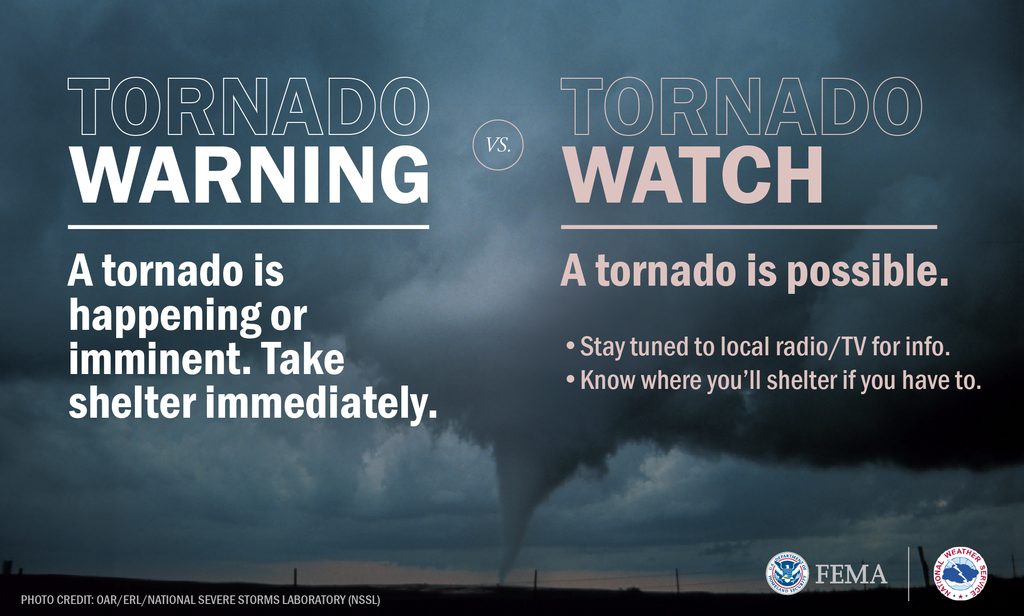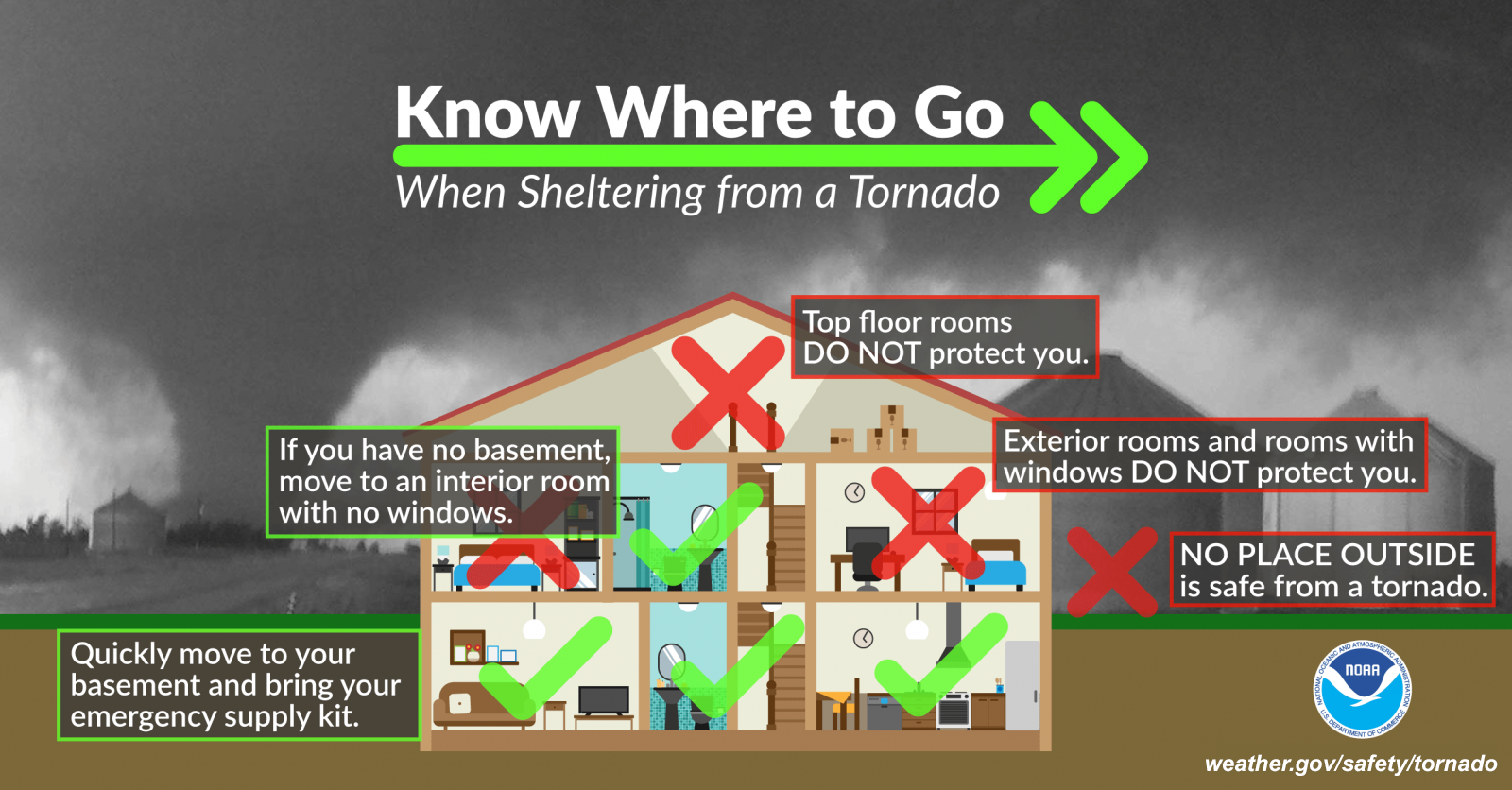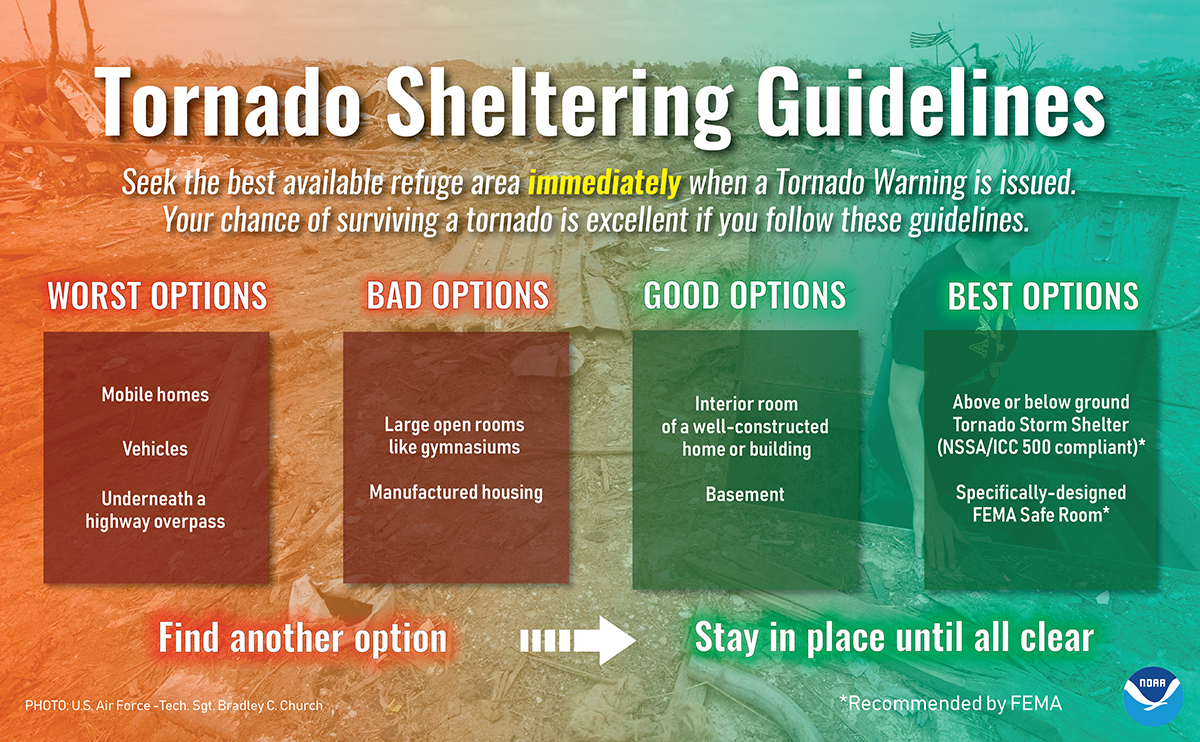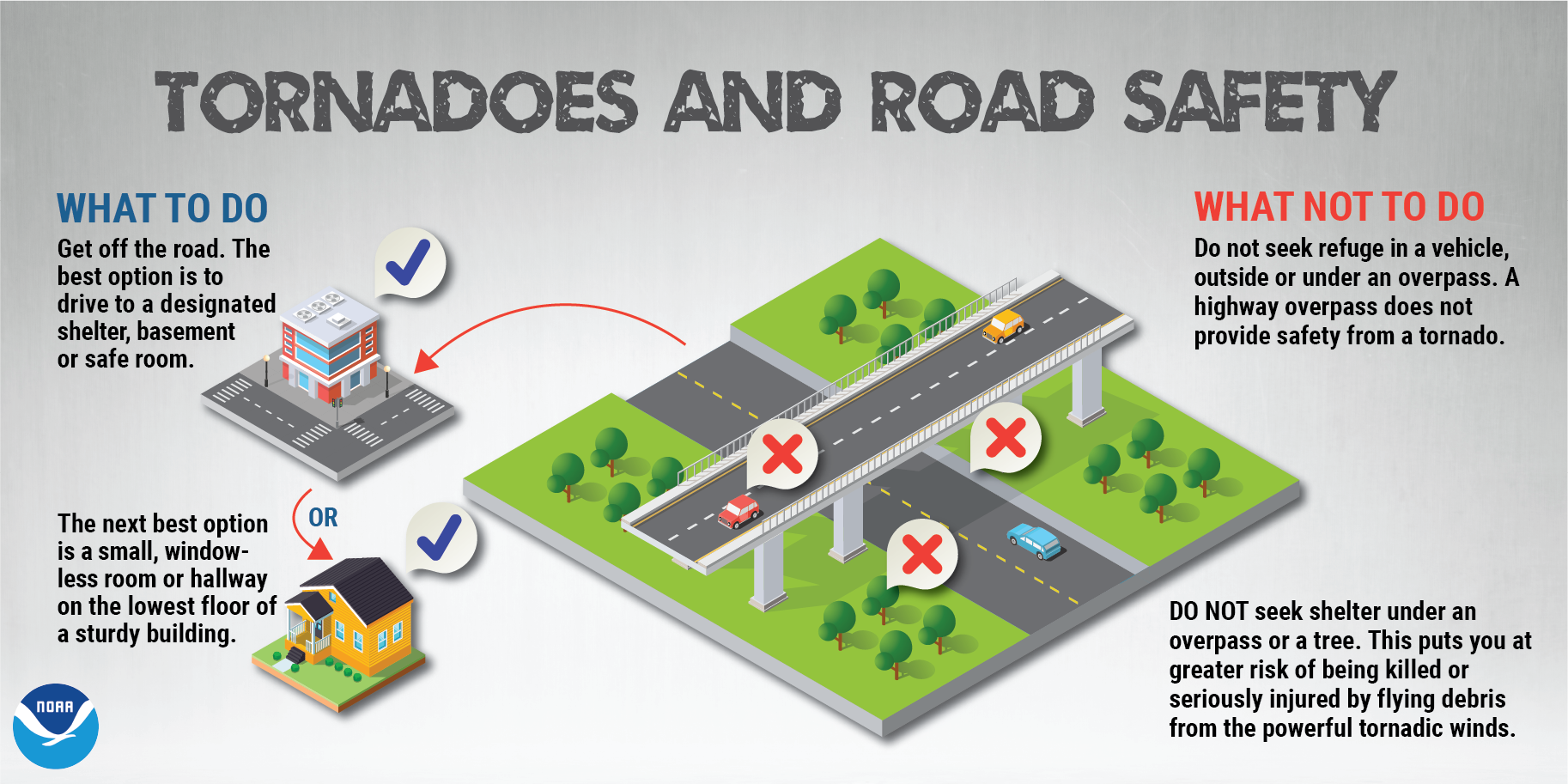Washington County > Emergency Management > Emergency Preparedness > Tornadoes
Share |
Emergency Management Menu
Tornadoes
Tornadoes are violently rotating columns of air that extend from a thunderstorm to the ground. Tornadoes can destroy buildings, flip cars, and create deadly flying debris.
A tornado can:
- Happen anytime and anywhere.
- Bring intense winds, over 200 miles per hour.
- Look like funnels.
If you are under a tornado or severe weather warning:
- Go to NOAA Weather Radio and your local news or official social media accounts for updated emergency information. Follow the instructions of state, local and tribal officials.
- Go to a safe shelter immediately, such as a safe room, basement, storm cellar or a small interior room on the lowest level of a sturdy building.
- Stay away from windows, doors, and outside walls.
- Do not go under an overpass or bridge. You’re safer in a low, flat location.
- Watch out for flying debris that can cause injury or death.
- Use your arms to protect your head and neck.
- If you can’t stay at home, make plans to go to a public shelter. Review the CDC’s guidelines for going to a public disaster shelter during the COVID-19 pandemic.




Preparing for a Tornado
- Know your area’s tornado risk. In the U.S., the Midwest and the Southeast have a greater risk for tornadoes.
- Know the signs of a tornado, including a rotating, funnel-shaped cloud, an approaching cloud of debris, or a loud roar like a freight train.
- Sign up for your community’s warning system. The Emergency Alert System (EAS) and NOAA Weather Radio also provide emergency alerts. If your community has sirens, then become familiar with the warning tone.
- Pay attention to weather reports. Meteorologists can predict when conditions might be right for a tornado.
- Identify and practice going to a safe shelter such as a safe room built using FEMA criteria or a storm shelter built to ICC 500 standards. The next best protection is a small, interior, windowless room or basement on the lowest level of a sturdy building.
- Consider Overlapping Hazards such as Coronavirus Disease 2019 (COVID-19). Review the CDC’s guidelines for going to a public disaster shelter during the COVID-19 pandemic.
- Plan for your pet. They are an important member of your family, so they need to be included in your family’s emergency plan.
- Prepare for long-term stay at home or sheltering in place by gathering emergency supplies, cleaning supplies, non-perishable foods, water, medical supplies and medication.
Staying Safe During a Tornado
- Immediately go to a safe location that you have identified.
- Pay attention to EAS, NOAA Weather Radio, or local alerting systems for current emergency information and instructions.
- Protect yourself by covering your head or neck with your arms and putting materials such as furniture and blankets around or on top of you.
- Do not try to outrun a tornado in a vehicle if you are in a car. If you are in a car or outdoors and cannot get to a building, cover your head and neck with your arms and cover your body with a coat or blanket, if possible.
Staying Safe After a Tornado
- Save your phone calls for emergencies and use text messaging or social media to communicate with family and friends.
- Pay attention to EAS, NOAA Weather Radio, and local authorities for updated information.
- Stay clear of fallen power lines or broken utility lines.
- Contact your healthcare provider if you are sick and need medical attention. Wait for further care instructions and continue to shelter in place.
- Wear appropriate gear during clean-up such as thick-soled shoes, long pants, and work gloves, use appropriate face coverings or masks if cleaning mold or other debris.
- National Weather Service Tornado Safety
- Protective Actions Research for Tornado
- Tornado Information Sheet (PDF)
- Taking Shelter from the Storm: Building a Safe Room Inside Your House (PDF)
- American Red Cross
- FEMA’s response to Coronavirus
- CDC’s response to Coronavirus
- EPA’s response to coronavirus
(Source: https://www.ready.gov/tornadoes)

Emergency Management
16232 Elliott Parkway
Williamsport, MD 21795
Phone: (240) 313-2920
Email: [email protected]
TTY users may call any government office
through the Maryland Relay Service
1-800-735-2258

